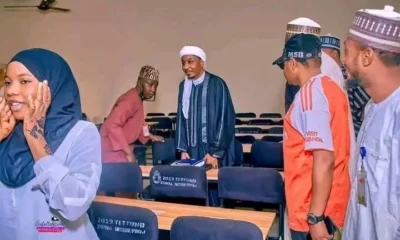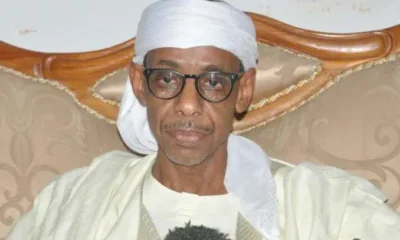News
Court restricts protesters in Abuja to MKO Abiola stadium
A federal capital territory (FCT) high court has restricted protesters of the nationwide protest slated for August 1 to the MKO Abiola stadium, Abuja.
Sylvanus Oriji, the presiding judge, gave the order on Wednesday while ruling on an ex parte motion brought by Nyesom Wike, minister of the FCT.
Wike sued Omoyele Sowore, Damilare Adenola, Adama Ukpabi, Tosin Harsogba, and persons unknown as 1st to 5th defendants.
Other defendants are the inspector-general of police (IGP), commissioner of police, director-general of the Department of State Security Service (DSS), director-general of the Nigeria Civil Defense Corps (NSCDC), chief of army staff, chief of air staff, and chief of naval staff as 1st to 12th respondents.
In the ex parte application argued by his lawyer, Ogwu Onoja, the FCT minister asked the court for an order of interim injunction restraining the first five defendants/respondents and other protesters from gathering or parading themselves along any roadway, streets, offices, and public premises within the FCT between August 1 to August 10, or any other day thereafter, pending the hearing and determination of the motion on notice.
He also applied for another order of interim injunction mandating the security agencies to prevent the protesting leaders from gathering or parading themselves along any roadway, offices, or public premises within the FCT between August 1 and 10, pending the hearing of his motion on notice.
Wike stated that while the federal government was not against the protest, intelligence and security reports that he received suggested that some “protestor leadership members intended to take advantage of the planned demonstration to wreak havoc, irreversibly damage public infrastructure, obstruct traffic, disturb public order, and prevent people from moving about”.
The FCT minister said upon reaching out to the security services to make sure the planned protest did not turn into criminal activity or disrupt public order; he was informed that they lacked the necessary resources to handle any potential problem that might develop from the demonstration at short notice.
Consequently, the judge granted all the reliefs sought, noting that Abuja residents should enjoy their constitutional right to freedom of movement and safety of their lives and properties.





















